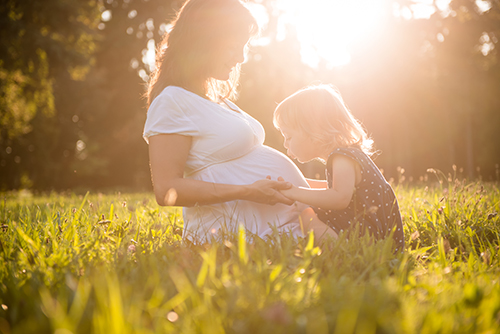英語記事に慣れる「サクっと読む英文」
2017.8.8
Best and worst countries for parental leave
Read the article to find out which are the top and bottom three countries for parental leave.
育児休暇制度の充実度の上位と下位それぞれ3カ国について記事を読んでみましょう。

In Japan, guaranteed maternity leave is 14 weeks in total – 6 weeks before birth, and 8 weeks after. In addition, either of the parents may take childcare leave, starting from 8 weeks after the birth of the child to when the child turns one year old. During both maternity leave and childcare leave, the employee can receive 2/3 of their regular pay.
Top 3 countries:
Finland gives a total of 23 weeks of paid leave for mothers – 7 before, and 16 after birth. In addition, fathers can get 8 weeks of paid paternity leave. Parents can also take partial care leave between the time the child is three years old and the time they start the second year in school. The leave is paid at 70% of regular pay.
Denmark gives 18 weeks of fully paid leave to mothers – 4 before the birth, and 14 after. The father can also take two weeks off after the birth. After that, the parents can use 32 weeks of fully paid leave in any way they choose between the two of them.
Sweden allows mothers 18 weeks of paid leave. After that, either of the parents can take up to 480 days of parental leave. Fathers are also given 90 days of additional paternity leave. The leave is paid at up to 80% of regular pay.
Bottom 3 countries:
Tunisia only allows 4 weeks of maternity leave at 50-100% of regular pay, depending on the job. There is little or no paternity leave.
Papua New Guinea gives between 6 to 12 weeks of unpaid leave for mothers, with no leave for fathers.
The US allows up to 12 weeks of unpaid leave for either the mother or the father. However, the job may not always be guaranteed after returning from leave. There are also separate state and city laws, as well as specific company regulations, which may give additional paid or unpaid leave.
Although countries included in the United Nations have agreed to try to guarantee a minimum of 14 weeks of parental leave paid at 2/3 of regular pay, it is clear that many countries are not meeting this minimum goal. On the other hand, there are many developed countries with a good economy which are able to achieve and do more than these minimum standards. Given the large amount of information showing the importance of parental leave for both parents and children, we can hope that an international standard will be achieved in the future.
In Japan, maternity leave is 14 weeks – 6 weeks before birth, and 8 weeks after. Either of the parents may also take childcare leave. It starts from 8 weeks after the birth of the child to when the child turns one year old. The pay is 2/3 of regular pay.
Top 3 countries:
Finland gives 23 weeks of paid leave for mothers – 7 before, and 16 after birth. Fathers can take 8 weeks of paid paternity leave. Parents can also take partial care leave. This is from when the child is three years old until the second year of school. The leave is paid at 70% of regular pay.
Denmark gives 18 weeks of paid leave to mothers – 4 before the birth, and 14 after. The father can also get 2 weeks leave. After that, the parents can use 32 weeks of paid leave. It is fully paid.
Sweden gives mothers 18 weeks of paid leave. After that, either parent can take 480 days of parental leave. Fathers also get 90 days of paternity leave. The leave is paid at up to 80% of regular pay.
Bottom 3 countries:
Tunisia only gives 4 weeks of maternity leave. The pay is 50-100% of regular pay, with some differences between jobs. There is little or no paternity leave.
Papua New Guinea gives between 6 to 12 weeks of unpaid leave for mothers. There is no leave for fathers.
The US gives up to 12 weeks of unpaid leave for the mother or the father. However, employees taking parental leave might lose their job. There are also local laws and company rules, which may give paid or unpaid leave.
Countries in the United Nations have agreed to try to give at least 14 weeks of parental leave at 2/3 of regular pay. However, many countries are not meeting this goal. There are also many countries that achieve this goal and do more.
キーフレーズ
parental leave 育児休暇
maternity leave 産休
depression うつ病
paternity leave 父親の育児休暇
currently 現在(のところ)
vary 異なる
異なる、相違するという意味です。記事中では「具体的な政策については国ごとに異なる」、という意味で使われています。
例:The price of houses varies a lot depending on the neighborhood they’re in.
(住宅の価格は住む地域によって大きく異なる。)
guaranteed 保証された
regular pay 基本給、固定給
決められた間隔で通常雇用主から支払われる基本賃金を意味します。
例:Your regular pay will be deposited on the 25th of every month.
(あなたの基本給は毎月25日に入金されます。)
paid leave 有給休暇
unpaid leave 無給休暇
meet a goal 目標を達成する
目標もしくは目的を達成する、という意味です。
例:I was able to meet my sales goals for the month.
(今月は自分の販売目標を達成することができた。)
Given (that) ~ ~であることを考えると(考慮すると)
文頭の ”Given” は、~(”Given” 後に続く事柄)について考えると、~だとすると、などと訳すことができます。”Given” の後に ”that” が入っている場合もあり、同じく、~(”that” 以下)を考えると、もし~ならば、という意味で使われます。
例:Given the difficulty of the test, I’m surprised he passed it.
(この試験の難易度を考えると、彼が合格したことには驚いた。)
例:Given that your salary is quite low, maybe you should be a bit more careful with your money.
(あなたの給料がとても低いことを考えると、もう少しお金の使い方に慎重になったほうが良いのかもしれない。)


 【Gabaからのお知らせ】
【Gabaからのお知らせ】 【特集】
【特集】 【英単語の正しい使い分け】
【英単語の正しい使い分け】 【使いこなす句動詞】
【使いこなす句動詞】